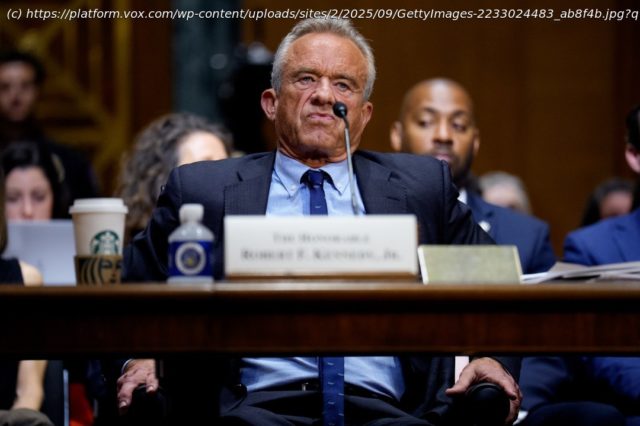Dr. William Moss, a former pediatrician, current professor in the Department of Epidemiology at the Johns Hopkins Bloomberg School of Public Health, unpacks this chaotic new chapter in America’s vaccine wars.
This week in “science” according to politicians, President Donald Trump and Health Secretary Robert F. Kennedy Jr. are now warning pregnant women to avoid Tylenol — yes, Tylenol — because of its supposed link to autism. Never mind that there’s no strong scientific evidence to back that up. It’s just the latest example of a clear trend in this administration: ideology-first policymaking.
Last week, a low-profile but high-stakes meeting on the country’s vaccine guidance flew under the radar, but there was major drama — and again more ideology on display than science.
Kennedy’s handpicked vaccine advisory committee met to update the schedule recommended to millions of parents across the US.
The meeting was chaotic and confusing — even to some of the Advisory Committee on Immunization Practices members. “I’m not sure what I’m voting on,” said Cody Meissner, one of its members. By the end of a grueling two-day session, the results were mixed. The committee walked back its previous recommendation of the Covid vaccines and postponed a vote that would delay the first vaccination for hepatitis B in newborns. But it did recommend that children under 4 years old shouldn’t get a combined MMRV shot — and should instead get separate ones for MMR and chickenpox, or varicella.
The chaotic meeting underscored our fractured state of public health guidance and what it means for our future. If even top government health officials can’t agree on immunizations, how are parents supposed to know what’s best for their kids?
To untangle all of this, we spoke with Dr. William Moss, a former pediatrician and professor in the Department of Epidemiology at the Johns Hopkins Bloomberg School of Public Health and the executive director of the International Vaccine Access Center. We get into the history of vaccination schedules, why countries can’t agree on the same one, and how public health officials should build trust with vaccine-hesitant parents.
“The way I kind of look at it when I put my pediatrician’s hat on is that all parents want to do what’s right for their child. “But,” Moss told Today, Explained co-host Noel King, “sometimes the risk of the disease can be underestimated. And that’s a large part due to the success of vaccines and the fact that we don’t see many of these vaccine diseases anymore.”
Below is an excerpt of their conversation, edited for length and clarity. There’s much more in the full podcast, so listen to Today, Explained wherever you get podcasts, including Apple Podcasts, Pandora, and Spotify.
When and why did we first start thinking that kids should be getting vaccines on this unified schedule?
There’s actually a long history of guidance on immunizations here in this country, and it’s gotten obviously more complicated as more vaccines have been introduced, but you can trace it all the way back to the 1930s when the American Academy of Pediatrics started issuing guidance on childhood vaccines.






